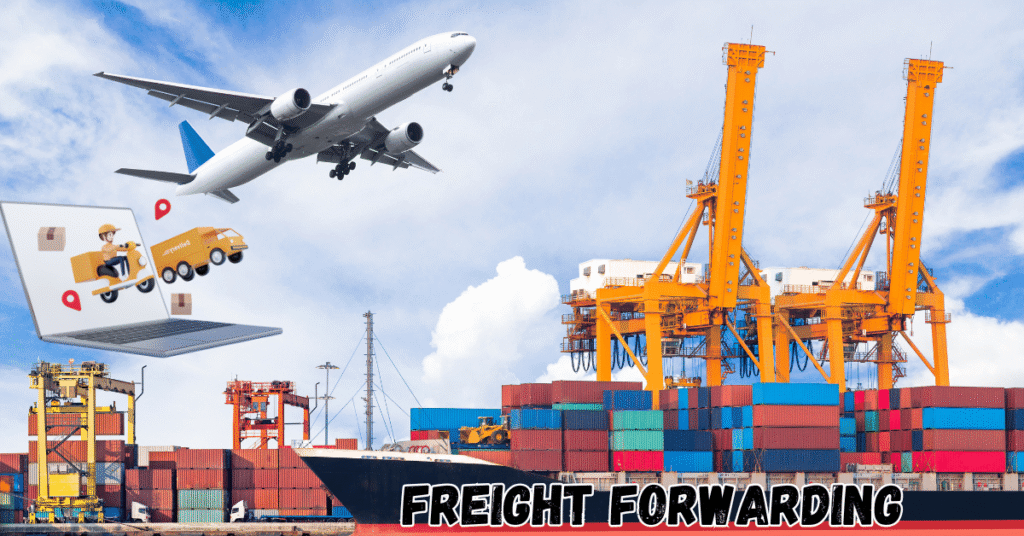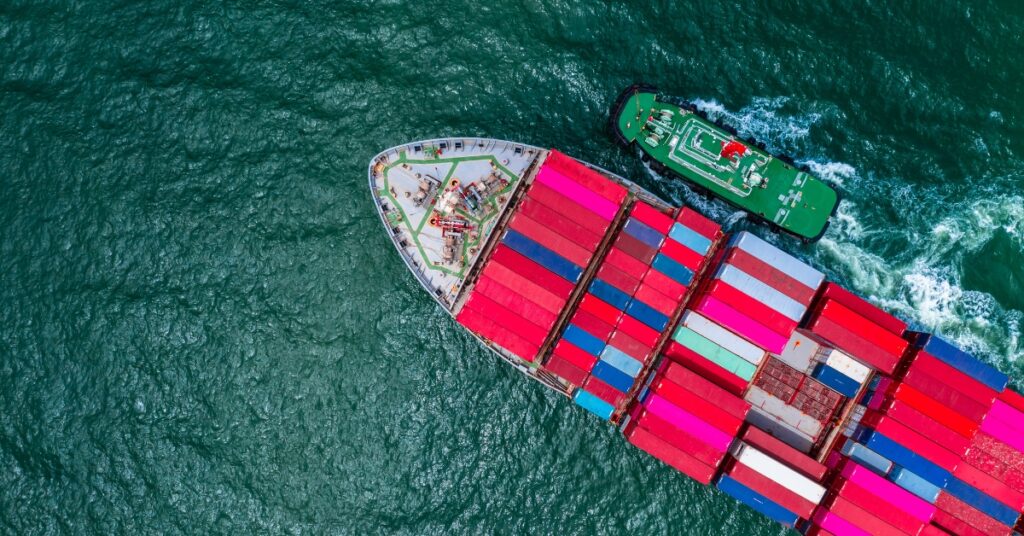Introduction
One of the most vital aspects of international trade is facilitating freight, which connects even the remotest manufacturer with the consumer of goods worldwide. Whether a small-time trader importing goods or a full-fledged organization with global supply chains, freight forwarding can simplify one’s life in logistics management, cut costs, and improve the punctuality of delivery to customers.
Everything freight forwarding-related, including why it is so important, how it works, the types of services it offers, benefits, challenges, and a few pointers on finding the best freight forwarders for your case, will be detailed in this extensive guide.
Shipping itself, freight forwarding refers to the movement of goods from the point of origin to the final destination by air, sea, rail, or a combination thereof, or by forwarding via one, two, several, or all standard modes of transport. In a nutshell, they are the middlemen between the customers and the transport services while doing other logistics on their clients’ behalf, including documentation, customs clearing service, warehousing, and insurance.
Freight forwarders do not own any means of transport by themselves; they instead employ their network to transfer freight.
How does freight forwarding work?
In brief, this step-by-step process will ensure smooth transportation as freight forwarding has an end:
1. Export haulage
That is also the transport line to freight forwarders as an export haulage, from the shippers’ warehouse to that of the freight forwarder.
2. Export customs clearance
The formal contract for export forwarders clears customs for export.
3. Handling at Origin
This is the point requiring offloading, examination, further examination, state endorsement stuffing for onward shipment.
4. Movement
Exports occur via air freight, shipping, rail, or truck. Generally, to give the best economical way with time, freight forwarders determine routes based on the demands of clients.
5. Import Clearance
Where customs clearance is conducted according to the country of arrival, the freight forwarders initiate the clearance.
6. Handling at Destination
Receive the cargo inside the destination port, perform an inspection, and arrange for delivery.
7. Import Transport
Import haulage transports cargo from the warehouse or port to specific destinations.
Type of Freight Forwarding
Nevertheless, in all other respects, freight forwarding types fall under specific categories that are associated with their relevance to other kinds of shipment, thus:
1. Air freight forwarding
This mode is fast and efficient and thus intended for high-value or time-sensitive shipments. Air freight is the most expensive, but it is definitely at its best in terms of speed compared to the others.
2. Forwarding by Sea
Not for bulk shipments, time is not critical. Economically, sea freight includes containers for carrying shipments, breakbulk, and RO-RO shipping.
3. Road Freight Forwarding
Moving goods via land, be it domestically or interstate. It is flexible, mostly combined with other modes.
4. Rail Freight Forwarding
Cost-effective, most eco-friendly long-distance transport when regular freight services are used.
Multimodal freight forwarding and international logistics services
Multimodal goods forwarding: what is it?
Combining several delivery methods under a single contract to save money and time.
Operations of International Logistics
- Carrier reservations for international shipping
- Preparing documents, such as invoices, certificates, and bills of lading.
Compliance with Customs and Regulations
- Services for customs broking
- Observance of import/export regulations
Insurance for Cargo and Risk Control
- Defence against cargo damage or loss
- Risk evaluation and settlement of claims
Solutions for Storage and Distribution
- Facilities for storage
- Effective channels for the delivery of commodities
Monitoring and Visibility
- Tracking freight in real time
- Increased transparency in shipments
Consulting for Supply Chains
- Strategic direction for optimising the supply chain from beginning to end
Benefits of Freight Forwarding
The advantages offered by such partners in the freight forwarding process.
1. Expertise and Proficiency
They know customs clearance, trade laws, international shipping regulations, etc. That professionalism may save you problems with some additions regarding your case, namely delays and errors.
2. Cost Saving
They get special discounts for bulk booking from the carriers and save costs by optimizing shipping routes.
3. Time-Saving
This will allow businesses to focus on other essential operations while these professionals completely manage all shipping problems arising from the various modes of transport.
4. Scalability
Freight forwarders cater their services to your size and requirements, from pallet shipping to full containers.
5. Full Transparency
Modern tracking allows a customer to see, in real-time, the shipment status.
Freight Forwarding Challenges
Challenges comprise:
1. International Laws
The more variable they are, the more critical it is to remain updated with ever-evolving trade laws, tariffs, and possibly even sanctions.
2. Customs Theft
Wherever there is even the slightest hitch in compliance, the other partner’s fault, or else it’s a case of documentary evidence that failed to comply, the shipper would face the liabilities of delays and penalties.
3. Capacity Shortages
Become more limited during peak seasons, raising the rates of freight.
4. Weather and Natural Calamities
Such unforeseen occurrences would disturb the schedule, hindering the operational efficiency of transport.
5. Cybersecurity
Data security is becoming increasingly important, owing to a skyrocketing trend of reliance on digital platforms.
A Guide to Selecting an Ideal Freight Forwarder
This will guarantee successful freight that fits all your needs while meeting all your wants. Check for the following before choosing a freight forwarder:
1. Experience and reputation
The forwarder should have proof of good experience through the performance of their past dealings and good partnerships across the globe.
2. Licensing and certification
Licenses and certifications such as those from IATA, FIATA, or NVOCC should be attested by the company.
3. Technology and tracking
The systems possess upgraded engines, good tracking, transparency, and ERP/ERP/e-commerce system integration.
4. Customer service
Real-time and proactive communication is needed at every step of the shipment proceedings.
5. Range of services
Full-service provider for ease of logistics with provisions of flexibility.
6. Cost Transparency
Avoid such companies with fictitious hidden costs. Always explicitly call for itemised quotes, then see if they can undercut that.
What is the difference between freight forwarding firms and shipping firms? Firms- the distinction must be drawn between forwarders and shipping companies that own the vessels, trucks, or planes used for transport. The functions of freight forwarders do not even include the boat’s ownership; they just serve as agents to arrange and coordinate the shipment through some carrier for the client’s benefit.
Put in relatively simple terms, one could liken a freight forwarder to the travel agents for cargo-not just to arrange transport for a single carrier but to arrange for the services of multiple carriers to pick up the client’s product somewhere from point A through to its destination at point B in the least cost and administrative hassles for that client.
Future Perspectives in Freight Forwarding
Digitalisation and automation have been the primary driving forces for changes in the freight forwarding sector toward sustainability. These are some trends that are shaping its future:
1. Digital Freight Platforms
The freight platforms offer instant quotes, tracking, and booking. This has improved transparency and, thus, customer satisfaction.
2. AI and Automation
Greater efficiencies include route optimization, customs compliance, and predictive analysis.
3. Blockchain
Cybersecurity, document integrity, and traceability.
4. Sustainability
Carbon-neutral freight is fast emerging as an Uber trend as environment-friendly freight practices gain traction.
5. eCommerce Integration
With fast-growing entries into cross-border e-commerce, the urgency for these solutions is mounting—fast and agile freight options for smaller shipments.
Freight Forwarding Alive: Real-life Showcase
An apparel company based in the U.S. buys its fabric from China and makes garments in Bangladesh, while its clientele is in Europe. Like any other company, the company has to deal with freight forwarding partners in charge of multiple border-cross shipments. More specifically, the company asks its partner to:
- Arrange sea freight from China to Bangladesh.
- Aid in customs clearance in both countries
- Assist in the transport of finished goods to European markets via air freight.
- Provision of end-to-end tracking and warehousing
Such complexity of the whole supply chain would face delays, compliance issues, and huge operational costs without qualified freight forwarders in place.
Conclusion
Thus, freight forwarding is the lifeblood on which global trade leans for the commodity movements crossing borders legally, promptly, and efficiently. Even new organizations tend to contract appropriate freight forwarding companies so that they can develop their business logistics strategies over time, reducing a certain degree of risk and enlarging the company’s international reach.
In this way, the right freight forwarding partner is one of your priorities when dealing with anything from customs clearance to multimodal transport for critical strategic resources in managing complexities with international freight. Also, staying informed and nimble will serve one very well in the long run in an ever-changing scenario and configuration of global trade.
FAQs On Freight Forwarding
Q1: What is the primary purpose of bringing freight forwarders?
A freight forwarder should move goods from origin to destination with all associated dispatch, customs warehousing, and arrangements through carriers.
Q2: Is freight forwarding only an international affair?
Most often referred to as international transport, it can also mean inward logistics.
Q3: How much would it cost to engage freight forwarding services?
Prices differ according to shipment size, mode of transportation, the distance, and whether or not insurance or warehousing is involved.
Q4: Is freight forwarding only for big businesses?
Yes, freight management forwarding has a solution for every startup, SME, and individual importer/exporter.
Q5: How is freight forwarding different from customs brokerage?
The customs broker is concerned only with customs, but freight forwarding involves the entire logistics process regarding their relationship to transport and warehousing.
Q6: What factors should be considered while selecting a good freight forwarder?
Experience, a global network, digital capabilities, transparent pricing, and positive reviews should be considered.



